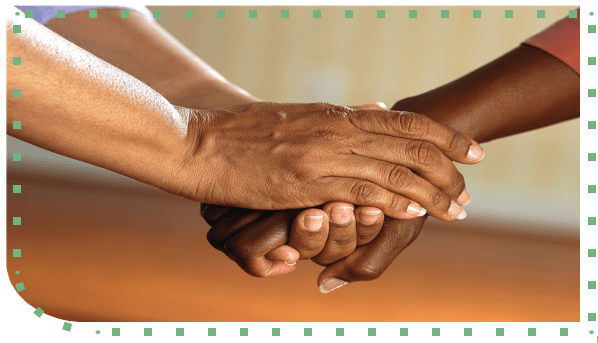Sexual and domestic violence know no boundaries: People of all ethnicities, cultures and backgrounds are affected. However, specific concerns and barriers to care can arise in communities of color. This happens on three levels, according to research by Dr. Tricia B. Bent-Goodley, a professor with the Howard University School of Social Work.
- On an individual level, people of color often turn to informal service providers — such as friends or faith leaders — to receive services prior to seeking help from formal providers. Sexual and domestic violence carry a stigma, and survivors are pushed to maintain secrecy.
- On an institutional level, stereotyping and a lack of cultural competence can impede providing services to survivors of color. It’s essential for service providers to offer trauma-informed and culturally informed care.
- On a systemic level, “disparate treatment leads to a suspicion that the system is out to get them as opposed to being interested in helping them,” Bent-Goodley writes.
Safe Harbor is aware of these challenges and actively works to overcome them. “Safe Harbor is doing what we can at an institutional level to address these barriers and effect change in the lives and services we offer to our client base,” says Selena Hicks, MAAT, ATR-P, ITR-CTS, an art therapist with Safe Harbor. “We have culturally informed clinical staff and volunteers who work with clients to provide counseling, case management, court advocacy and support.”
When new volunteers and staff members join Safe Harbor, their training discusses racial justice, cultural considerations, and how institutional racism contributes to the challenges clients face. Because Safe Harbor respects cultural differences in Black and Brown communities, Hicks says, “we hope that there is an understanding that Safe Harbor really can be a safe place for all survivors.”
Richmond’s immigrant population is especially vulnerable to domestic violence and trafficking, says Blanca Barrera Morales, LCSW, a bilingual senior therapist at Safe Harbor. Often, “they fall into the false promises of a better job, or a loving relationship,” Barrera Morales says. They’re far from home, trying to navigate a new culture and find employment without the support of family and friends. And “they’re coming from countries where they don’t trust the legal system,” she says. “They don’t know their resources. They don’t know their rights.”
In 2017, Safe Harbor collaborated with the Sacred Heart Center (SHC) to deliver culturally specific services to Hispanic survivors of sexual and domestic violence and human trafficking. SHC is a trusted and well-known community center for Richmond’s Hispanic community. What started with a part-time, bilingual, bicultural therapist on site at SHC one half-day per week has expanded to include counseling and case management services with bilingual bicultural staff on site two full days a week. The SHC provides childcare and transportation. This collaboration provides the tools necessary for Hispanic survivors to heal and thrive, and ultimately break the cycle of violence within their families and our community.
We provide clients with a Spanish-speaking counselor, case manager, and court advocate in Henrico County Juvenile and Domestic Relations Court. We explain their rights and how we can assist them. Often, survivors don’t know that they can be eligible for a U visa if they have been the victim of a crime or a T visa if they have experienced human trafficking.
In short, Barrera Morales says, “We walk beside them.” Once a survivor begins to feel safe, that’s when they can begin to process what has happened to them. Six out of every 10 women who emigrate to the United States from the south experience sexual assault. So, Barrera Morales explains, they’re not only processing the most recent event that brought them to Safe Harbor; but also the violence that they suffered before, in their country or on their journey. Many of these survivors have endured terrible trauma, and yet are hopeful about the future. “It’s amazing, the resiliency and the strength that they have,” Barrera Morales says.

